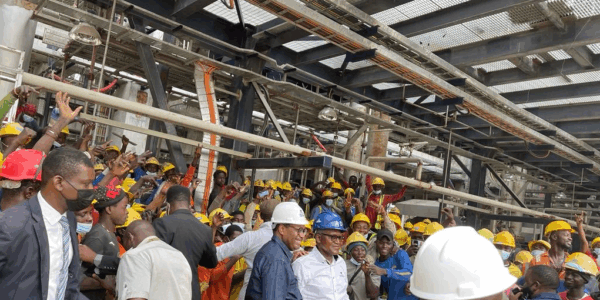The largest refinery in Africa, the Dangote refinery, is facing technical challenges similar to those observed in some Middle Eastern facilities. A leak of catalysts in the gasoline production unit is compromising its ability to meet the growing global demand for fuels. Located in Nigeria and with a capacity of 610,000 barrels per day, the refinery experienced a breakdown in its diesel production unit. According to sources close to the matter, leaks of catalysts and various malfunctions led to the temporary shutdown of the unit. The incident comes after a significant increase in diesel exports from the refinery, which had benefited from slowdowns in several Middle Eastern refineries.
Last June, Dangote shipped 90,000 tons of diesel to Asia, marking the first shipment beyond West Africa. However, the technical shutdown is disrupting this momentum: according to IIR Energy, the fluidized catalytic cracking unit (RFCCU) has been out of service since August 29. Repairs could last up to two weeks, potentially affecting gasoline supply in the Atlantic basin. In this context, American refineries, already benefiting from increased margins, could take advantage of the tightening global supply.
Aliko Dangote, president of the industrial empire, recently highlighted that the refinery had shipped nearly a million tons of fuel in recent months, solidifying Nigeria’s position as a net exporter of refined products. The country has indeed reduced its diesel imports from 500,000 barrels per day in early 2023 to 88,000 barrels per day in the first quarter of 2025. This decrease contrasts with South Africa, which now leads the ranking of African importers with 15.5 million tons expected this year, compared to just 6.4 million for Nigeria.
This breakdown highlights the fragility of energy infrastructure and the importance of rigorous maintenance to preserve African competitiveness. If repairs are carried out promptly, the Dangote refinery can regain its upward trajectory and maintain its strategic role in the global market balance. But the episode also illustrates the volatility of a sector where each technical shutdown can reshape international trade flows.


